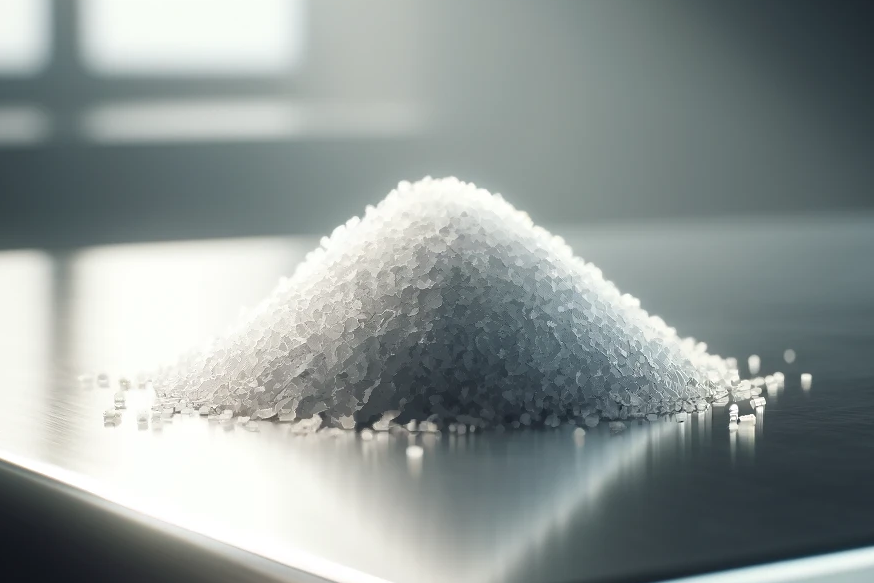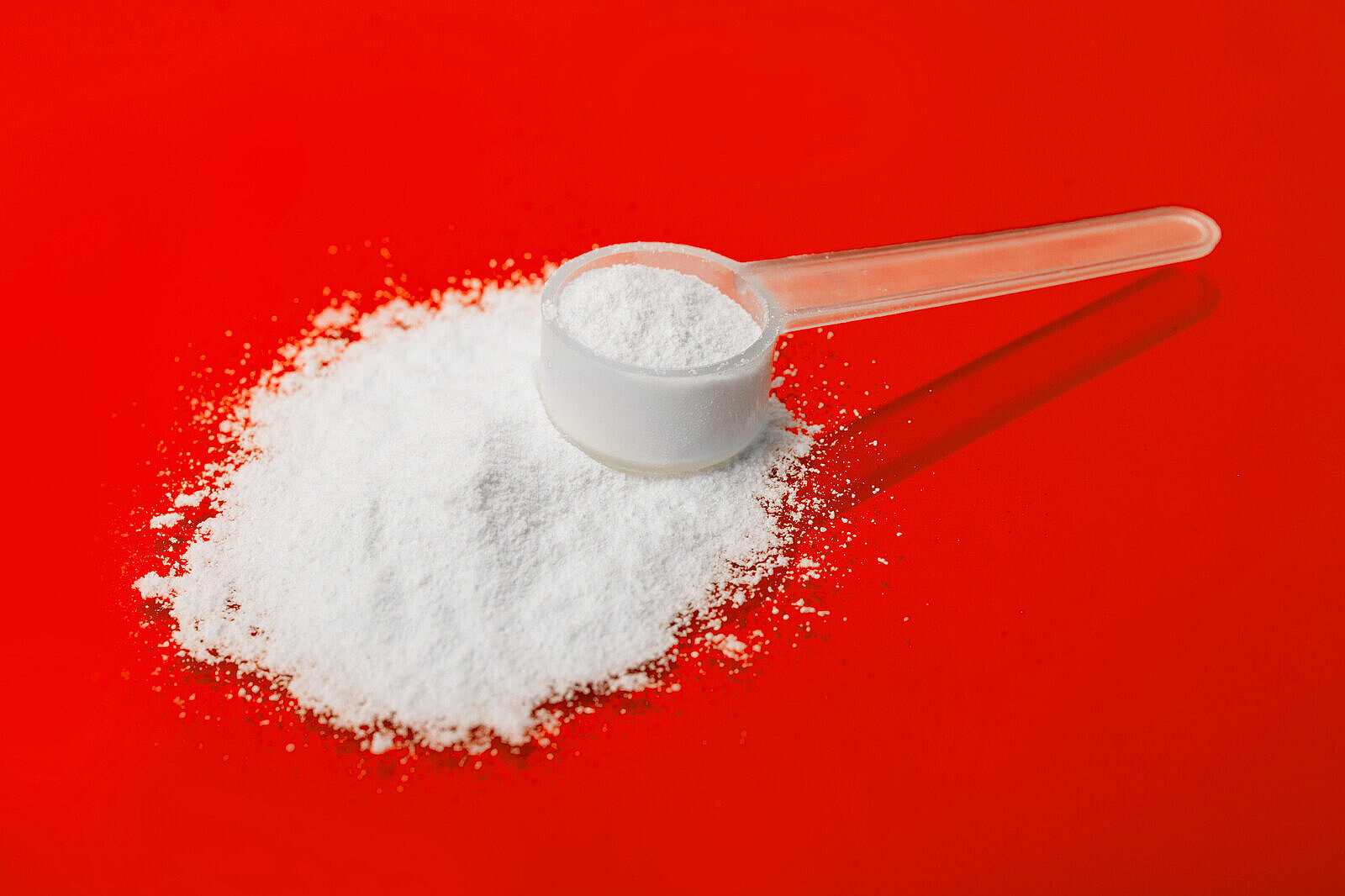Manganese(II) chloride

What is manganese(II) chloride?
Manganese(II) chloride (MnCl2) is a chemical compound consisting of manganese and chlorine. In nature, manganese is mainly found bound in various minerals, while manganese(II) chloride is often used in industrial processes and as a dietary supplement. For dogs, manganese is an essential trace element that is important for numerous biological processes.
The importance of manganese(II) chloride for dogs
Promotion of bone health
Manganese is crucial for the development and maintenance of strong bones. It plays a role in the formation of connective tissue and cartilage, making it particularly important for growing puppies and older dogs.
Supporting the metabolism
Manganese(II) chloride is involved in the activation of enzymes that are essential for the metabolism of proteins and carbohydrates. This contributes to energy production and the efficiency of nutrient utilization.
Antioxidant effect
Manganese supports the function of superoxide dismutase, an important antioxidant enzyme that protects cells from free radical damage.
Possible risks and side effects
Toxicity in case of overdose
Although manganese is essential for dogs, an overdose can lead to manganese toxicity. Symptoms of such toxicity include lethargy, ataxia (incoordination) and other neurological problems.
Interactions with other minerals
High levels of manganese can interfere with the absorption of other important minerals such as iron, calcium and zinc, which can lead to an imbalance in the dog's mineral balance.
Difficulty of dosing
It can be difficult to determine the exact amount of manganese supplied via supplements. This increases the risk of unintentional overdosing.
A balancing act
Manganese(II) chloride is an essential trace element in the diet of dogs, playing a key role in the development and maintenance of bone health, metabolism and antioxidant protection. At the same time, it carries the risk of toxicity in overdose and can interfere with the absorption of other minerals. A dog's diet is a complex puzzle in which every piece must fit perfectly - and manganese(II) chloride is one of those critical, albeit double-edged, pieces of the puzzle.
If you notice any signs of hypersensitivity or poisoning in your dog, you should see your vet immediately. We are not a substitute for a vet, but we try to be as accurate as possible. Every dog reacts differently and we recommend you get a second opinion or consult your vet if in doubt.
Stay healthy and take good care of your four-legged friend!😊
Similar to Manganese(II) chloride
Iron(II) sulphate, also known as ferrous sulphate, is a chemical compound that is mainly used as an iron supplement in animal nutrition. It is a salt consisting of iron ions in the +2 oxidation...
Copper(II) chloride is an inorganic salt that exists in two hydrate forms: the anhydrous CuCl2 and the dihydrated CuCl2-2H2O. It is soluble in water, methanol, ethanol and other solvents, which...
Zinc chloride is a chemical compound that is formed when zinc reacts with chlorine. It is known for its many uses, from textile and paper production to metallurgical treatment. But in veterinary...
Your dog needs a sufficient amount of magnesium every day to stay healthy and productive. The recommended daily dose is around 10 to 12 milligrams per kilogram of body weight. Magnesium can be...



